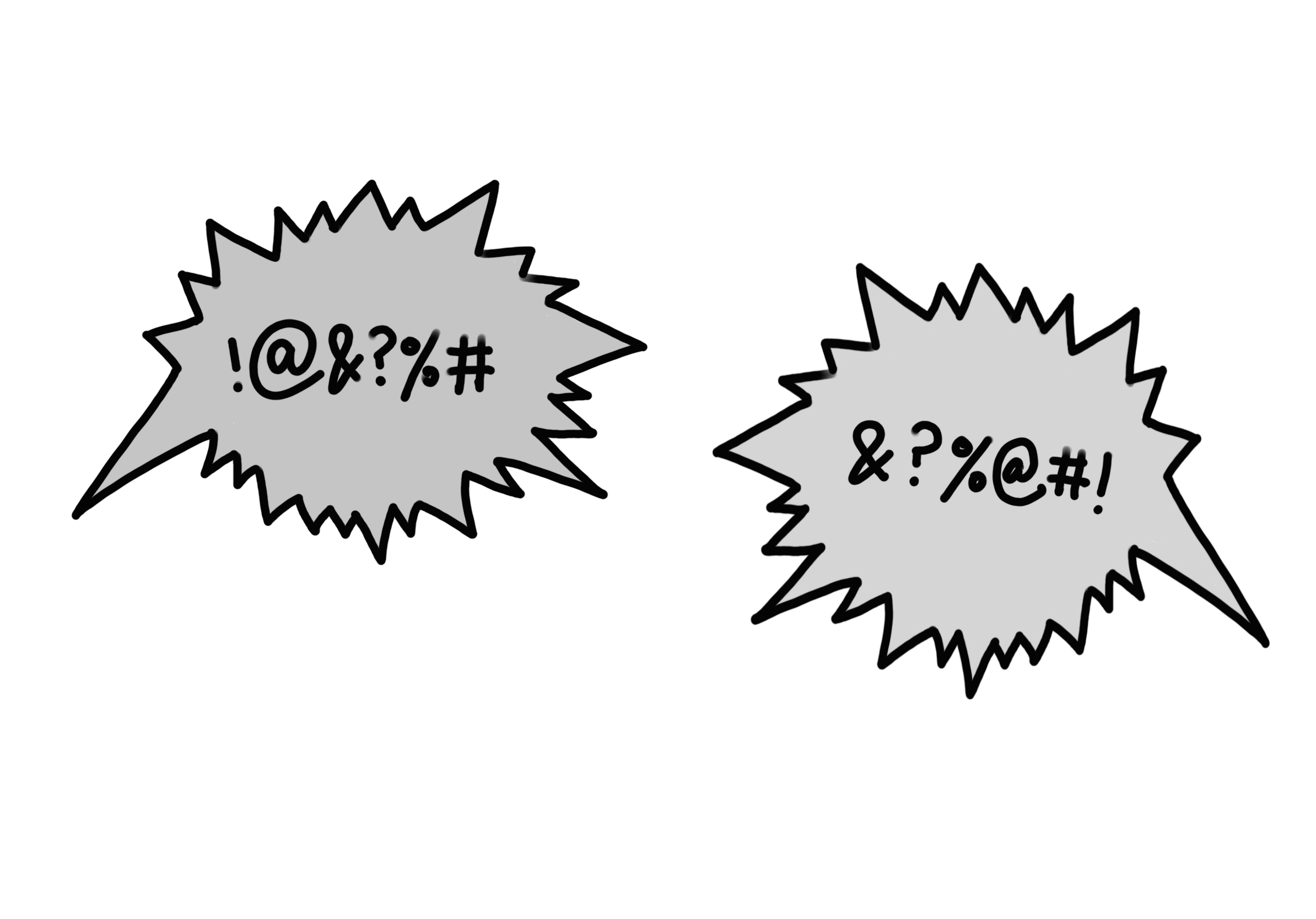The evolution of profanity
March, 2025
Graphics: Charley Hu
Conversations at PHS are often embedded with strings of expletives, which occasionally result in teachers warning students about their language. This seemingly normal occurrence demonstrates that although profanity has become desensitized for younger generations, it still carries weight for the older population and in professional environments. According to a paper from the International Journal of Literature, Language, and Linguistics (IJLLL), a survey comparing Generations X, Y, and Z reported that only 4 percent of Generation Z respondents reported no use of profanity, contrasting with a larger 43 percent of Generation X participants. Despite this disconnect between profanity and past generations, most popular curse words have deep historic roots and come directly from the Middle Ages.
According to the Saturday Evening Post, profanity in medieval times mostly revolved around religion and eventually became associated with immodesty. These examples allude to a greater trend in profanity — historically, profanity matches the needs and desires of its users and the society it exists in. For example, general profanity revolved around racial slurs in societies where racial discrimination was a norm. Today, what we define as profanity is once again changing, and it will likely cause a rift between Generation Z and older generations such as Generation X. For example, the word “damn” was considered a serious profanity in the 16th century. However, in the modern era, its profane nature has more or less dissipated. For instance, The New York Times and other major print publications have loose regulations surrounding the printing of “damn” in article titles, but will only include the word “f—” in “highly contentious quotations and interview transcripts”. The IJLLL paper found that Generation Z is more likely to use profanity light-heartedly or in casual conversation. Words currently still generally considered profane, such as “f—” or “s—,” may join “damn” and quickly lose that designation if they continue to be used in normal contexts.
In contrast to “damn,” certain words have had their profane statuses elevated. The r-slur, which began as a professional medical term for neurodivergent people, quickly became common profane vocabulary. After various social movements pointed out the r-slur’s derogatory nature towards neurodivergency, it began to be considered as a slur. Its slur status was then solidified in 2010 when President Barack Obama signed “Rosa’s Law,” which changed “mental retardation” to “intellectual disability.” It’s likely that the next wave of profanity will not be any new, strange words, but rather a revival of what is currently considered unacceptable. For example, most PHS students have likely heard at least one slur in the hallways. Offensive slurs such as the f-slur and the r-slur that have been phased out of popular vocabulary seem to be making a worrying comeback. Interestingly, this coincides with the rise of conservatism among U.S. youth alongside racism, misogyny, xenophobia, homophobia, etc. These ideas and associated slang spread quickly in the fast-paced digital age, contributing to the loss of meaning for otherwise offensive words.
It is important to recall, though, that these changes in profanity are generally concentrated in younger generations. Older generations are less likely to change their perception of words they have always known as profane. This results in a generational language gap — when younger generations casually use words older generations may still perceive as highly hurtful, it can cause conflict. In the workplace, which many PHS students are only years away from entering, this dissonance could have particularly negative effects. Although curse words being used more casually isn’t inherently negative, it is important for younger people to remember that language does not change at the same rate for everyone.
As we, the younger half of Gen Z, begin to enter the professional sphere and transition into a world where we are not always mostly surrounded by our peers, we should start to be more mindful of our words — we will need to communicate effectively with other people, and profane language, although more casual for young people, is intrinsically divisive.
Traditional curse words are losing their meaning for younger people as they use them as casual terms, not as expressions of significant emotion. These developments should be taken seriously, as they will not only create far-reaching professional and interpersonal consequences, but could also accelerate the use of bigoted slurs in common conversation. Although these linguistic developments seem out of our hands, by consciously making an effort to remove profanity from our vocabularies, we can still make a difference.